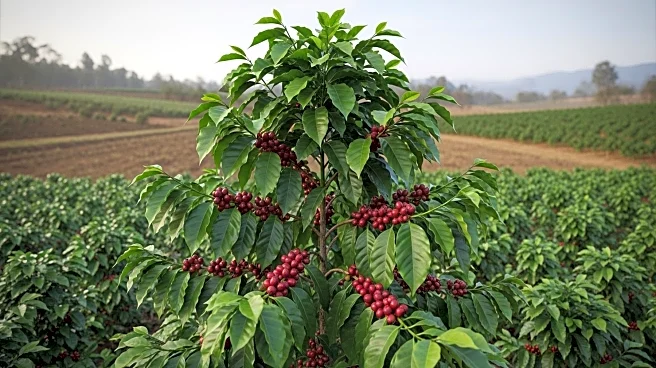What is the story about?
What's Happening?
The coffee industry faces significant challenges due to climate change, which is expected to reduce suitable farmland by 50% by 2050. Major coffee-producing countries like Brazil and Vietnam may become unsuitable for coffee cultivation, impacting U.S. coffee supplies. Ethiopia could lose 21% of its coffee-growing area due to rising temperatures. Coffee farmers are dealing with erratic weather patterns, floods, and droughts, which threaten production. The industry also faces labor shortages as younger generations move away from farming due to financial pressures and harsh working conditions.
Why It's Important?
The shrinking farmland and labor challenges could lead to higher coffee prices and changes in flavor profiles. Coffee farmers often live at or below the poverty line, and the international market prices do not reflect production costs, exacerbating financial difficulties. The industry's reliance on arabica coffee, which requires specific climatic conditions, is threatened by climate change, prompting interest in alternative coffee species like stenophylla, excelsa, and liberica. These varieties offer potential resilience to climate change but require further research and development.
What's Next?
Researchers are exploring alternative coffee species that can withstand higher temperatures, such as stenophylla, which has a similar taste to arabica. The industry may see a shift towards robusta coffee, which is more resilient to climate change but has a different flavor profile. Synthetic coffee, made without beans, is also being developed as a potential alternative. Coffee drinkers may need to adapt to new flavors as the industry evolves in response to climate challenges.
Beyond the Headlines
The coffee industry's challenges highlight broader issues of economic inequality and the legacy of colonialism, as many coffee-growing regions struggle with poverty and exploitation. The need for sustainable practices and fair trade policies is critical to support farmers and ensure the industry's future viability.















